
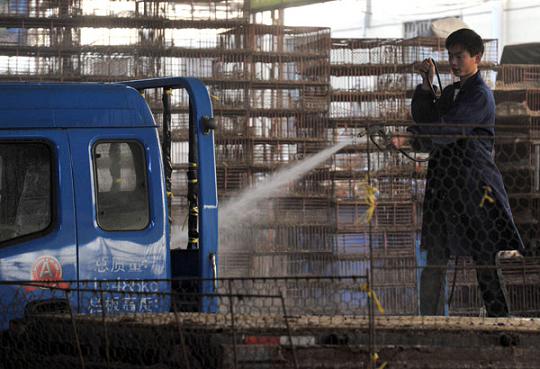 |
| A worker cleans his truck after unloading poultry at Zijin shan live poultry market in Nanjing, Jiangsu province. (You You / for China Daily) |
It was later determined that Wang Shuqing had flu, not H7N9.
Nationally, the central government has stepped up vigilance and carried out retrospective and epidemiological studies to combat the disease, said Deng Haihua, a spokesman for the National Health and Family Planning Commission.
So far, no one in close contact with patients with confirmed H7N9 has tested positive for the new virus, he said.
Meanwhile, Michael O'Leary, the World Health Organization's representative in China, added a note of optimism: "Right now we see no risk of human-to-human transmission, and we hope that it will remain the case.
"We have to follow that very closely, however, because the virus can change. But at present, it looks like this is a sporadic virus that people are only catching from animal sources," he said.
H7N9 is primarily related to other avian viruses and the discovery that it has been detected in pigeons provides a clue for those working to locate each patient's source of infection, he noted.
Zhong Nanshan, a renowned medical expert in China, urged greater efforts in tracing the source of the virus. "We should further expand investigations and testing among wild birds as well," he said.
In fact, so far no birds have died from H7N9, even though some have tested positive, according to Bi Yingzuo, a professor who sits on the official poultry-related disease expert panel in southern Guangdong province.
The lack of avian deaths prompted him to suggest that the infection, now widely known as H7N9 bird flu, should be renamed simply as H7N9 flu. "In a similar case, swine flu was renamed H1N1 flu," he said.
Analysis of the virus' genes suggested that, although the strain evolved from avian viruses, they have displayed signs of adaptation to grow in mammalian species.
So far, the virus has prompted a cull of more than 20,000 birds, but has caused no major problems in poultry.


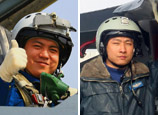
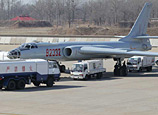

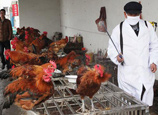

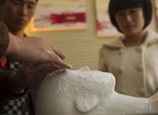










 Our luxuriously departed Paper-made "luxury" goods replace paper money as top offerings to the dead during Qingming
Our luxuriously departed Paper-made "luxury" goods replace paper money as top offerings to the dead during Qingming


![]()
